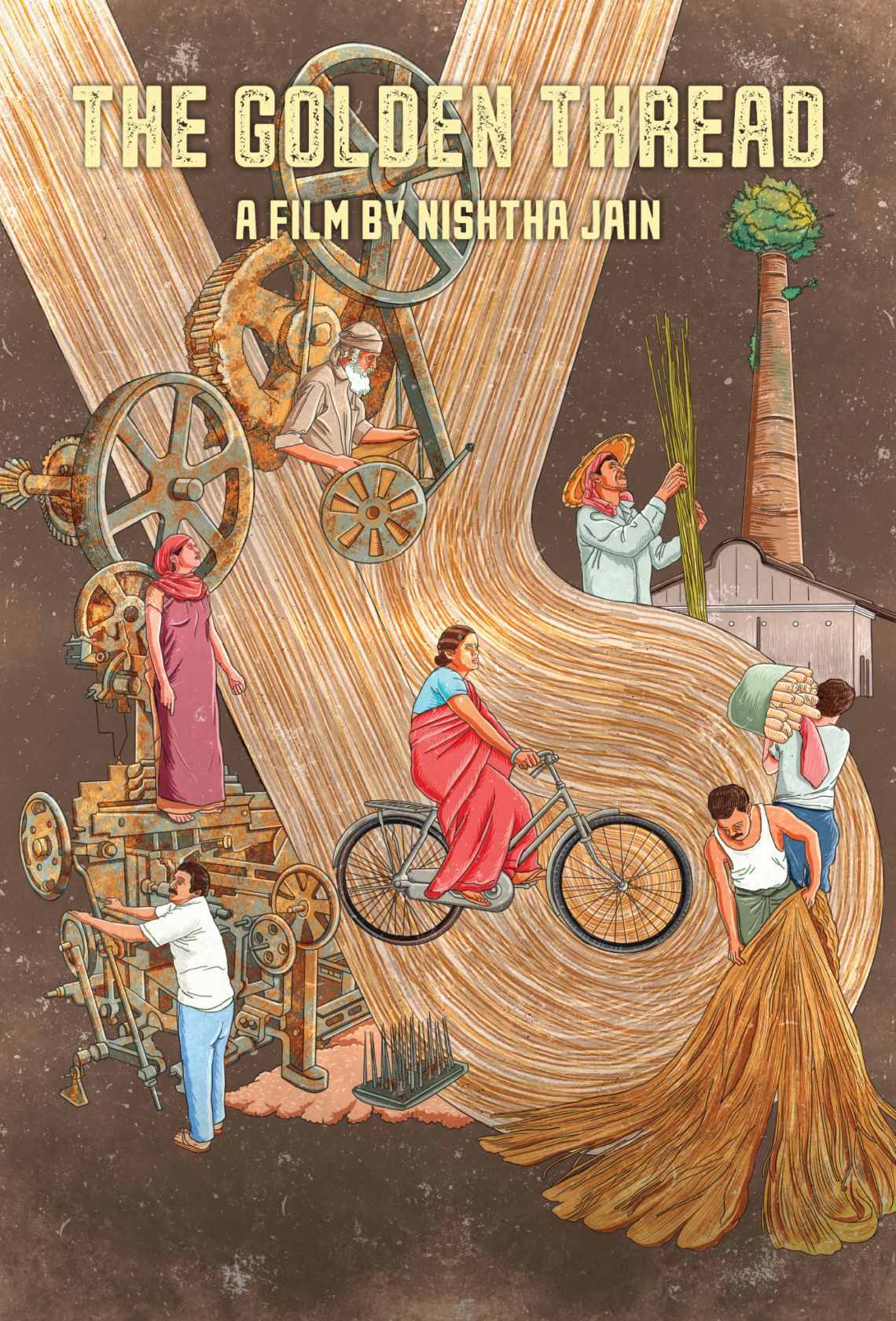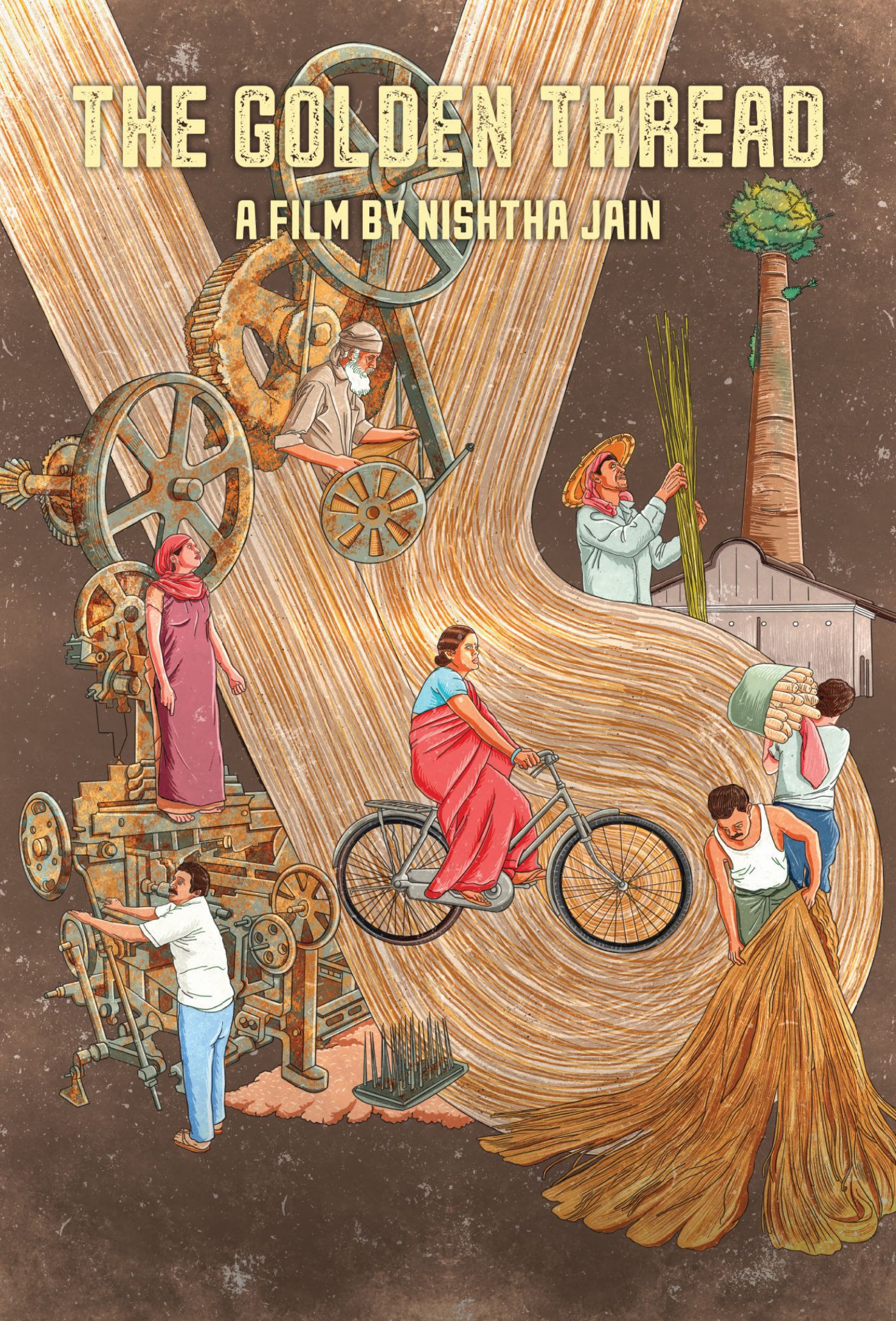The Golden Thread

The Golden Thread
One among the many ways of watching Nishtha Jain’s exquisite documentary, ‘The Golden Thread’ (2022), is by following the imagination of urbanist Patrick Geddes. This turn of the 20th century pioneering urbanist worked in many parts of the world, including India. His urban practice was never confined to the obvious. He saw the boundary of a city stretched way beyond its physical precincts, going deep into the hinterland and being entrenched in the materiality of its region. He saw how a city’s personality was shaped by the different textures of its physical constituents. In his words
we must clearly group (urban regions) on that scale of values which is so clearly-exemplified from their resultant Cities, and note their respective civilization-levels so far as their industries determine them. Beginning with jute/we have thus Jute-Dundee and Jute-Calcutta…next comes Cotton-Manchester 'and the surrounding Lancashire towns, with Cotton-Bombay now recapitulating their history…. here in Cotton-Indore...
From; A Report to the Durbar of Indore, Geddes, 1918
‘The Golden Thread’ takes the viewer through a journey about a near-forgotten raw material, pins it down on a near-forgotten region, where it is grown, processed and produced in a replay of a near-forgotten moment of history – the industrial revolution. The film tells the story of Jute set in the twenty-first century – simultaneously evoking a moment of political theatre that was alive and kicking in the times of Patrick Geddes.
Workers of a jute making factory just outside Calcutta, a city that once was shaped economically by this material, fight for better wages. They battle a state that is caught between a history of labour sensitive practices and the anti-labour energy of a neo-liberal present.
Even as it is set in what seems like a film-set of a 19th century factory, it manages to give you a glimpse of contemporary workers lives as it is really lived in hi-tech producing sweat-shops, modern factories, and construction sites of futuristic cities all over the globe, hidden behind curtains of articulated intentions.
The workers in The Golden Thread belong to many worlds – of mobile phones, and contemporary aspirations, of nineteenth century machines and agrarian histories – without somehow forgetting their role in history as politicized labour. What is special is that they manage to do this along with celebrating their lives as members of their families, community and friendship networks.
Join their celebration and struggle at a screening of the film by urbz Paris, followed by a discussion with the film-maker at a very special venue, the ‘Luminor’ Rue de Temple, Hotel De Ville, Paris on April 7th, Friday at 6:00 p.m. Please RSVP before 3 April as there are very few seats left.

